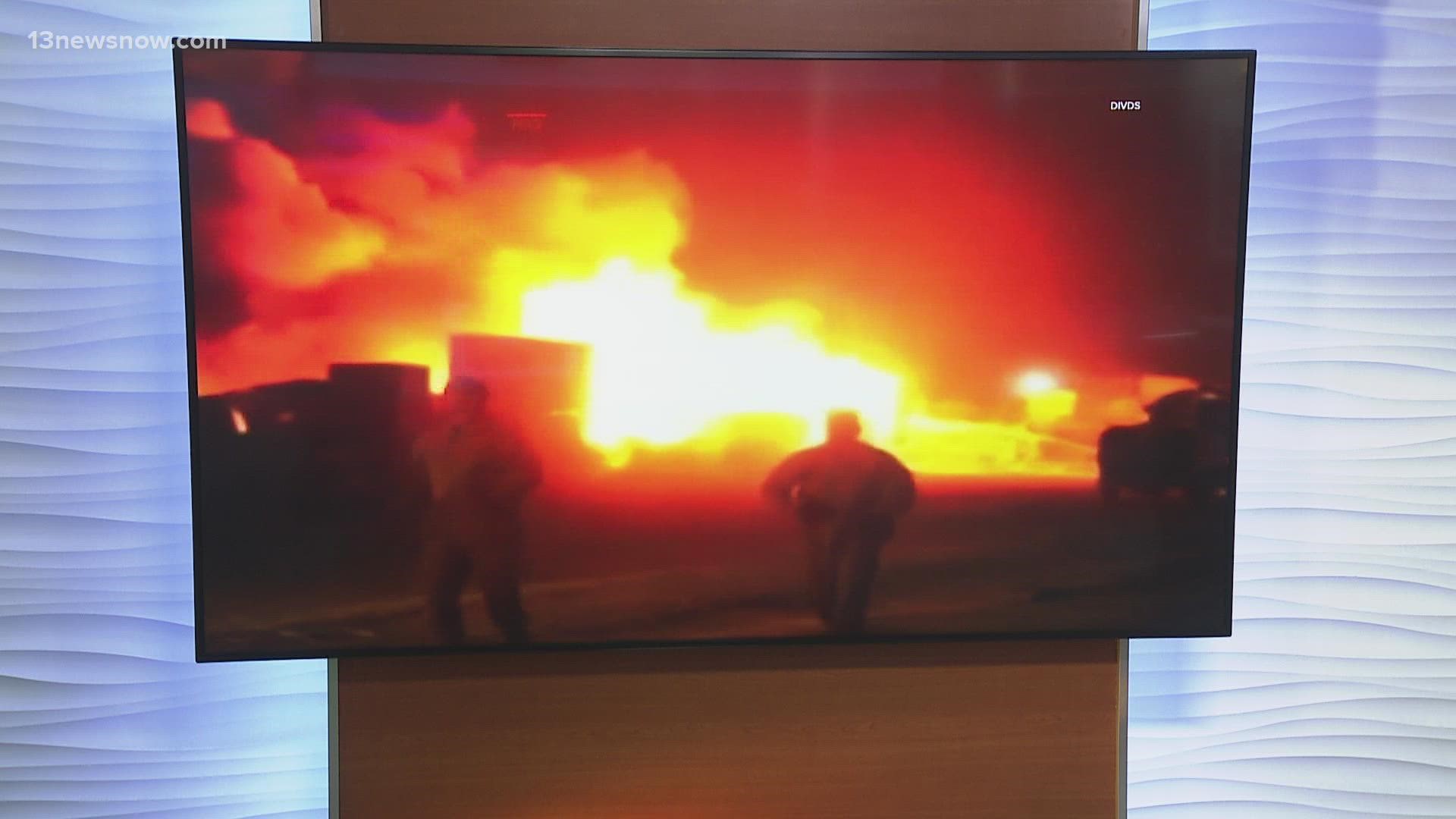WASHINGTON — The number of U.S. military veterans submitting claims to the Department of Veterans Affairs for toxic exposure continued to grow.
Secretary of Veterans Affairs Denis McDonough said Monday that number is now nearing 137,000.
"We want veterans and survivors of Central Command from 1991 to 2021, 30 years of war, to apply for their toxic exposure benefits right now," he said.
It's projected that 3.5 million veterans exposed to toxic burn pits from Operation Desert Storm through the later 21st century wars in Afghanistan and Iraq will benefit from the new "Sergeant First Class Heath Robinson Promise to Address Comprehensive Toxins Act (PACT) Act" passed by Congress and signed by President Joe Biden in August.
"We'll bring generations of new vets into VA health care and increase the health care benefits of many more and this will result in better health outcomes across the board," said McDonough. "We'll deliver benefits to more survivors of vets who passed away from toxic exposures, and we'll invest in our workforce and our infrastructure to deliver those additional services, modernizing 31 more healthcare facilities. This is a great thing."
Speaking at the National Press Club, McDonough said that starting Tuesday, all patients visiting Veterans Affairs healthcare facilities will undergo new toxic exposure screenings in an effort to monitor for signs of illness and to inform veterans that they may qualify for the new PACT Act benefits.
"And beginning tomorrow, we're offering enrolled veterans a new toxic exposure screening, an important step towards making sure that all toxic exposed vets get the care and benefits they deserve, even if they don't know today that they were exposed," he said. "Because vets have waited too long already."
And, although taking care of veterans is one of the costs of war, it is worth noting that the PACT Act is very expensive.
The Congressional Budget Office estimates that the law will cost taxpayers more than $277 billion over the next 10 years.

